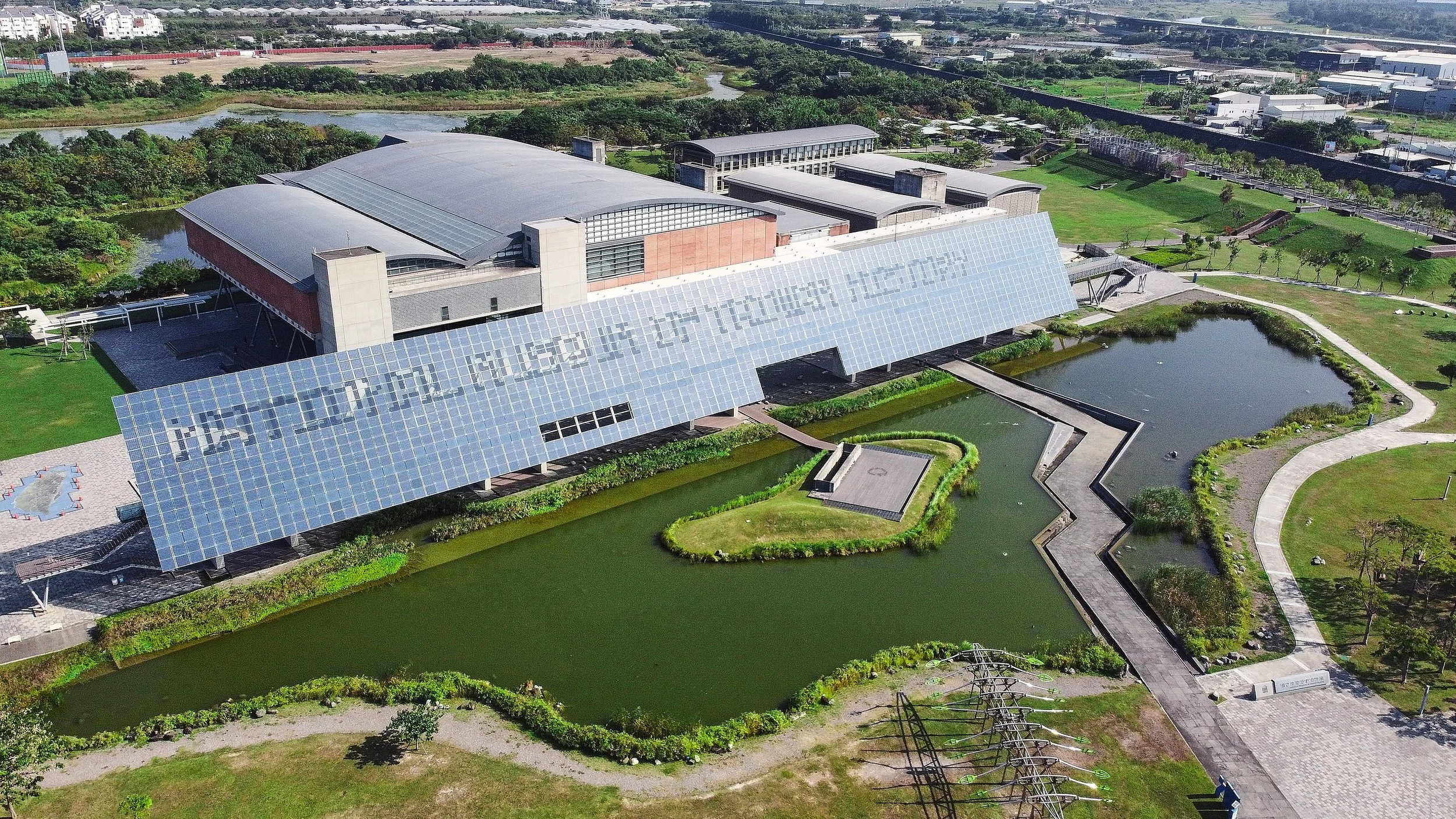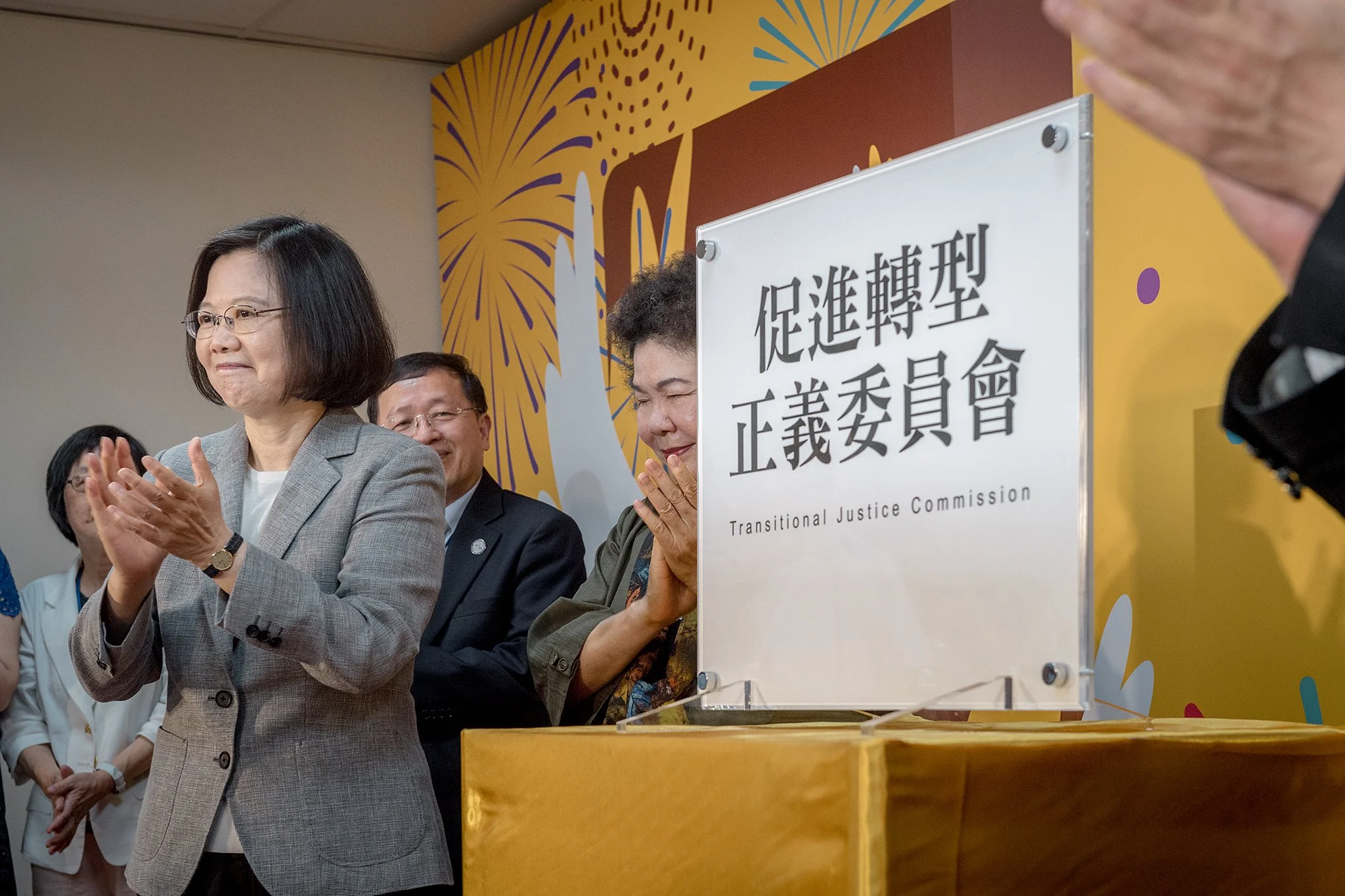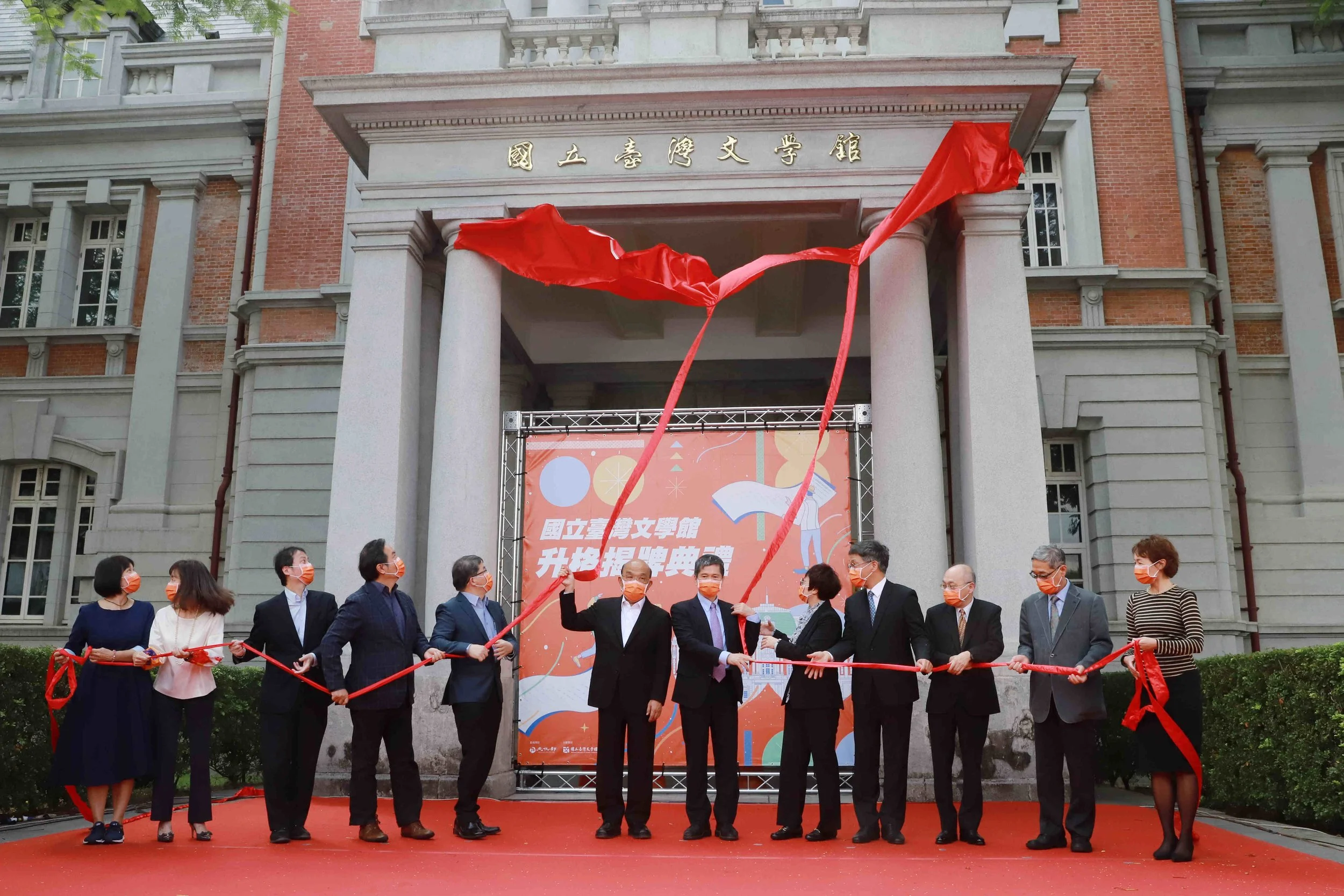Historicizing “Taiwan History”: An Interview with Lung-chih Chang (Part 1)
The field of Taiwan history has gained increasing visibility in academia, both in Taiwan and abroad. Before the lifting of martial law in 1987, however, the production and dissemination of Taiwan-related knowledge in Taiwan either failed to receive organized institutional support or was subsumed under an anti-Japanese and China-centered historiography. The establishment of the field of Taiwan history corresponded to Taiwan’s democratization and the emergence of a “Taiwan consciousness” in the 90s and 00s.
The Taiwan Gazette is pleased to interview Dr. Lung-chih Chang (張隆志) to discuss the past and present of the field of Taiwan history and the role the National Museum of Taiwan History will play in introducing Taiwan history to domestic and international visitors and exhibiting Taiwan as an “island of encounters.”
Dr. Chang is Director of the National Museum of Taiwan History and Associate Research Fellow and former deputy Director of the Institute of Taiwan History, Academia Sinica, Taiwan. He received his Ph. D. in History and East Asian Languages from Harvard University. Dr. Chang has been a visiting scholar in Tokyo University, Cambridge University and Heidelberg University. His research interests include social and cultural history, comparative colonialism, historiography and public history. He is now working on a manuscript about historiography and public memory in contemporary Taiwan.
Featuring as part of our special issue: Encountering Everyday Life: Taiwan in Museums, this interview is published in two parts. Part 1 will focus on the formation of Taiwan history as an academic field of study; Part 2 will concentrate on the founding of the NMTH and how the museum will establish its connections to Taiwanese and international visitors.
Acknowledgement: This interview was conducted online in English on October 4, 2021 and has been edited for clarity. The cover image is a map entitled “Taiwan’s East Asian Neighbors” (〈我們的東亞鄰居〉) and was drawn by cartographer Ko-Hua Yap (葉高華). We have received the permission from the Geographic Information Research Center of the Department of Geography, National Taiwan University (臺大地理系地圖多媒體研究室), to use the map as our cover image.
Interviewed by Yu-Han Huang
Transcribed and edited by Sabrina Teng-io Chung
Taiwan Gazette: Thank you for accepting our invitation and taking your time for this interview, Dr. Chang.
Lung-chih Chang: It’s my honor.
Taiwan Gazette: We will begin our interview with a set of questions related to the field of Taiwan history and the processes of its institutionalization. Our first question is related to your academic trajectory. You undertook your undergraduate and graduate studies in the 1980s and 1990s, a time when Taiwan history was not yet institutionalized as a field of study, both in Taiwan and the United States. Can you share with us your student experiences at that time? How was Taiwan history taught at colleges? What made you decide to pursue Taiwan history as your field of research when you entered graduate school in National Taiwan University and later in Harvard University?
Lung-chih Chang: I became an undergraduate student in the History Department of National Taiwan University in the 1980s and entered graduate school in 1986, one year before the lifting of martial law in Taiwan. There were virtually no history courses related to Taiwan during my undergraduate years. I decided to choose Taiwan history as the focus of my MA thesis for two reasons. For one, my time in graduate school overlapped with a watershed moment in Taiwan history where social movements leading to the lifting of martial law in 1987 were on the rise. This is partially the external reason that underpinned my research on Taiwan history, or the growth of my awareness of Taiwan history.
But the direct reason is that I was very fortunate to have studied with two very important and excellent mentors at National Taiwan University. One was my supervisor Professor Ts'ao Yung-ho (曹永和), the other Professor Huang Fu-san (黃富三), both of whom are pioneer scholars of Taiwan history. I was fortunate to learn from their expertise and gradually cultivate my interest in this field.
So, the two major reasons are the socio-political environment of pre- and post- martial law Taiwan and my encounter of two excellent mentors who led me to the study of Taiwan history. There were a lot of Taiwan-related courses since the 1980s prior to the institutionalization of the field. These are the major reasons that guided my research on Taiwan history.
Taiwan Gazette: Can you provide us with some examples of the Taiwan-related courses that were offered in the 80s at National Taiwan University?
Lung-chih Chang: Several Taiwan-related courses were offered individually at the History Department of National Taiwan University. For example, the late Professor Yang Yun-ping (楊雲萍), also a pioneer scholar of Taiwan history, offered several courses about Taiwan. He taught courses such as the History of Southern Ming, which focuses on Koxinga (鄭成功) and the Zheng regime, and the Historical Sources on Taiwan, which focuses on local gazetteers (地方誌) and other pioneer studies like Lian Ya-tang’s (連雅堂) General History of Taiwan ( 《臺灣通史》). These courses were only taught by individual scholars. The field of Taiwan history had not been recognized formally and institutionally in the early days.
Professor Huang Fu-san succeeded Professor Yang Yun-ping and delivered courses on the general history of Taiwan in the History Department. Professor Ts'ao Yung-ho who worked as a librarian at National Taiwan University was very belatedly recognized for his academic achievement on early Taiwan history and maritime history of East Asia. He started teaching courses in 1985, two years before I entered graduate school. Professor Ts'ao taught two graduate courses: the topical research on Taiwan history as well as the historical sources on Taiwan. This is the general picture of Taiwan-related courses in my graduate days.
Taiwan Gazette: Following our first question, I would like to ask how Taiwan history was studied during and before the 80s. How did scholars understand Taiwan history and its relations to the established fields such as China studies or Japan studies? Can you also share with us your PhD experiences at Harvard University?
Lung-chih Chang: Sure. This is a very complicated story, but to put it in a nutshell, there were four different traditions related to the field of Taiwan history before the 1980s. One is Chinese local history and frontier history which focuses on Ming and Qing Chinese documents on Taiwan as well as the Ming and Qing governments’ frontier management of Taiwan. This first tradition relies on Chinese-language sources such as local gazetteers, palace memorials, and more.
The second major tradition is the study of Japanese colonial history that focuses on the Japanese rule on Formosa from 1895 to 1945. That field of study relies on major sources such as investigation records by the Japanese colonial government and relevant archival materials from mainland Japan.
The third tradition is the western-language research on Taiwan. You can trace the development of this research back to the early days starting from the late 19th century when missionaries, along with diplomats, merchants, and other travelers, came to Taiwan following the opening of Taiwan’s treaty port in the 1880s. They became the pioneers of western-language research on Taiwan. It was not until 1903 that James Wheeler Davidson (1872-1933) wrote the first general history of Taiwan entitled The Island of Formosa, Past and Present. It remained a standard reference until today, though the publication is a little bit dated.
Another important tradition that needs to be recognized in terms of the western-language study on Taiwan is postwar area studies. Especially in the U.S.-based area studies on East Asia, Taiwan was regarded as a sample of overseas Chinese society. A lot of anthropologists and historians came to Taiwan to conduct their research on Chinese society because of their lack of access to mainland China which was under communist rule. These are the three major traditions that remained very dominant until the 1980s.
There was another non-academic but very important tradition: the nativist studies of Taiwan history by Taiwanese intellectuals during the Japanese colonial era and postwar era. It served as a counter-narrative to China-centered orthodox history. Also, in overseas Taiwanese communities, the study of Taiwan history became one of the major means to advocate Taiwanese nationalism and an anti-Kuomintang political movement. There were various local and nativist traditions both within Taiwan and abroad.
I consider these four major traditions very important predecessors of post-martial law Taiwan historical studies.
Taiwan Gazette: Can you further discuss the role of western scholars in the discipline of area studies, a discipline which played a very important role in the research of Taiwan history from the 50s and 60s? How should we understand these traditions, especially in terms of the western scholarly treatment of Taiwan?
Lung-chih Chang: This is a very important question. U.S. or Europe-based social scientists and historians contributed to Taiwan historical studies by turning it into a vigorous field of academic research, especially with their introduction of social scientific methods and modernization theory from the 60s and 70s. For example, there were two major projects led by these scholars: one was the study of “Choshui-Tatu River Valleys Interdisciplinary Research Project” (濁大計劃) led by the late archaeologist K. C. Chang (張光直). The other was the “The Regional Research Project on China’s Modernization” (中國現代化的區域研究) conducted by scholars within the Institute of Modern History in Academia Sinica. These two major projects not only made use of various local sources alongside field research but also introduced social scientific methods to the historical studies of Taiwan. The systematic and interpretative research efforts of these two major projects later evolved into a debate between Professor Chen Chi-nan (陳其南) and late Professor Lee Kuo-chih (李國祁) over the history of Chinese immigrants in Taiwan during Qing rule. This is what can be referred to as the indigenization versus mainlandization debate. The growth of such a body of scholarship and research methodologies signified the gradual maturation of the field of Taiwan history.
Taiwan Gazette: I think we can now move on to discuss the institutionalization of Taiwan history as a field of research. When you returned to Taiwan from your PhD studies in the early 2000s, there were significant social and cultural changes in Taiwanese society, most notably, the curriculum reform of primary and secondary education and the proposed founding of the Institute of Taiwan History at Academia Sinica. How did these changes affect the younger generation of scholars and students of Taiwan history at that time? How should we understand the relationship between the institutionalization of the field of Taiwan history and the processes of democratization in Taiwanese society?
Lung-chih Chang: I think the institutionalization of the field of Taiwan history could be considered a product of Taiwan’s democratization and the formation of civil society following the lifting of martial law. On the one hand, the freedom of speech in post-martial law Taiwan gave voice to previously suppressed if not totally prohibited discussion of the island’s past. This led to the rise of a new Taiwanese consciousness and Taiwan-centered identity. On the other hand, the four major academic traditions that I briefly outlined in my answer to your previous question converged after the post-martial law era because of the processes of democratization. Scholars from different academic positions could discuss issues related to Taiwan freely and made use of newly released materials such as those from the former archives of the Government-General of Taiwan. These two factors made possible the emergence of a new atmosphere and very productive environment for the study of Taiwan history, contributing to its being recognized as an academic field of research.
The case of the founding of the Institute of Taiwan History also exemplified this process. In 1986, Academia Sinica formally recognized the field of Taiwan history by setting up a Field Research Project which was later reconfigured in 1988 into the Taiwan History Field Research Office (臺灣史田野研究室) led by K. C. Chang. A joint effort of four different Taiwan-related institutes, the Field Research Office could be seen as the predecessor of the preparatory office of the Institute of Taiwan History which was set up in 1993 [with Huang Fu-san serving as the first director]. After several years of preparation, the office became a full-fledged research institute in 2004. Until today, the Institute of Taiwan History is still a leading institution of Taiwan historical studies, not only on the island but also around the world. This is a vivid example of how Taiwan history gradually evolved from a subordinate if not peripheral field of study to a full-fledged research subject that is both institutionalized and internationalized.
Taiwan Gazette: Can you further discuss the connection between Taiwan’s democratization and the emergence of Taiwan history as a field? How did earlier scholars come to believe in the urgency of establishing the field? How did changes in academia affect society and the public?
Lung-chih Chang: Several reasons have contributed to the emergence of the field of Taiwan history in post-martial law Taiwan. First, the emergence of a “Taiwanese consciousness” made possible the rise of a Taiwan-centered historiography. This historiographical trend maintains that historical scholarship on Taiwan should focus on the island and the people of Taiwan, and that the study of Taiwan history should be an independent field of study in and of itself.
The second reason is not only a response to the growth of a Taiwanese consciousness in the post-martial law period and the re-centering of historiographical focus on Taiwan history in academia. The rise of a postcolonial historiography of Taiwan is also worth noting. In addition to viewing Taiwan as an independent nation-state, postcolonial historiography also puts emphasis on the issues of ethnicity, gender, and class. Such an emphasis aims to give voice to subaltern groups and their marginalized voices and perspectives. Put differently, a postcolonial historiography aims not only to direct focus on the great personalities of political regimes. It also directs more attention to those socially disenfranchised groups such as women and the indigenous population, groups that had been largely neglected in previous historiography. Hence, the combination of various factors--social, political, cultural--along with academic trends within historical studies contributed to the rigorous development of the new field of Taiwan history.
Taiwan Gazette: Another question I have is related to the controversies surrounding the curriculum and high school textbook reform in the 2000s. The controversies revolved around how Taiwan history should be studied. What might be the role of academic historians of Taiwan in these controversies?
Lung-chih Chang: There have been several controversies or debates within the historical circles in Taiwan. For example, the evaluation of the role and legacy of Japanese colonialism in Taiwan as well as the origins of Taiwan’s modernity. Some scholars advocated for the positive roles of Japanese colonial rule and civil administrators such as Gotō Shinpei (後藤新平) and others. Others considered the Self-strengthening movement in the late Qing to be the origins of Taiwan’s modernity. They placed emphasis on the Qing government and its progressive officials including Liu Mingchuan (劉銘傳), the first governor of Taiwan, and others. You can also find this kind of debate in the dangwai (黨外) magazines in the mid 1980s. Such debates continued until today. For example, in 1997, we have a well-known junior high school textbook in Taiwan called Knowing Taiwan (《認識臺灣》). The evaluation of Japanese colonial rule had been a focus of political controversy. In 2000 and 2001, because of the translation of the Japanese comic book by Kobayashi Yoshinori (小林 よしのり), there was another round of controversy surrounding not only Japanese colonialism but also the questions of comfort women, indigenous soldiers, and more.
Though academic issues might have been invoked, this kind of political controversy was essentially organized around identity politics. I think we need to distinguish between political controversy and academic debates. Although sharing similar thematic concerns, political controversy and academic debates are very different in nature. There have been different positions or spectrum of political positions among academic historians. For further clarifications, we can consider the post-martial law emergence of historical scholarship on Japanese-ruled Taiwan. During the martial law era, the study of Japanese colonial history was a taboo--source materials could not be fully disseminated, discussed, or published. The orthodox discourse in the field of historical studies at that time was basically anti-Japanese Chinese nationalism. The “liberation” of this research topic, along with the outpouring of sources related to Taiwan’s modern period, is itself a very important phenomenon or a special chapter in Taiwan-centered historiography.
References:
Chang, Lung-chih. “From Island Frontier to Imperial Colony: Qing and Japanese Sovereignty Debates and Territorial Projects in Taiwan, 1874-1906.” PhD diss. Harvard University, 2003.
---. “Telling Histories of an Island: The Academics and Politics of History Textbook in Contemporary Taiwan.” In Designing History in East Asian Textbooks: Identity Politics and Transnational Aspirations, 117-34. Edited by Gotelind Muller. New York: Routledge, 2011.
---. “Island of Memories: Postcolonial Historiography and Public Discourse in Contemporary Taiwan.” International Journal for History, Culture and Modernity 2, no. 3 (2014): 229-44.
---. “Colonialism and Modernity in Taiwan: Reflections on Contemporary Taiwanese Historiography.” In Broken Narratives: Post -Cold War History and Identity in Europe and East Asia, 133-164. Edited by Susanne Weigelin-Schwiedrzik. Translated by Axel Schneider. Amsterdam: Brill, 2014.






